Henry Kemble may refer to:
- Henry Kemble (actor, born 1848) (1848–1907), British actor
- Henry Stephen Kemble (1789–1836), British actor
- Henry Kemble (politician) (1787–1857), British member of parliament
Henry Kemble may refer to:
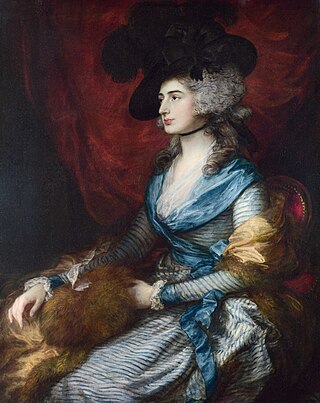
Sarah Siddons was a Welsh actress, the best-known tragedienne of the 18th century. Contemporaneous critic William Hazlitt dubbed Siddons as "tragedy personified".

Charles Kemble was a Welsh-born English actor of a prominent theatre family.

George Stephen Kemble was a successful English theatre manager, actor, and writer, and a member of the famous Kemble family. He was described as "the best Sir John Falstaff which the British stage ever saw" though he also played title roles in Hamlet and King Lear among others. He published plays, poetry and non-fiction.

Frances Anne "Fanny" Kemble was a British actress from a theatre family in the early and mid-19th century. She was a well-known and popular writer and abolitionist, whose published works included plays, poetry, eleven volumes of memoirs, travel writing and works about the theatre.
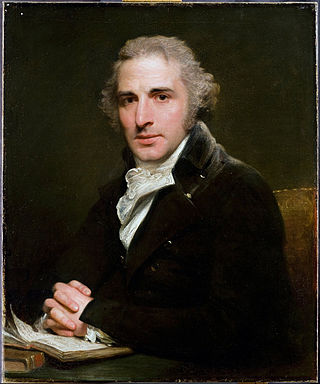
John Philip Kemble was a British actor. He was born into a theatrical family as the eldest son of Roger Kemble, actor-manager of a touring troupe. His elder sister Sarah Siddons achieved fame with him on the stage of the Theatre Royal, Drury Lane. His other siblings, Charles Kemble, Stephen Kemble, Ann Hatton, and Elizabeth Whitlock, also enjoyed success on the stage.

Huzzah is, according to the Oxford English Dictionary (OED), "apparently a mere exclamation". The dictionary does not mention any specific derivation. Whatever its origins, it has seen occasional literary use since at least the time of Shakespeare, as the first use was in 1573, according to Merriam-Webster.
Paul Henry may refer to:

Adelaide Kemble was an English opera singer of the Victorian era, and a member of the Kemble family of actors. She was the younger sister of Fanny Kemble, the famous actress and anti-slavery activist. Her father was actor Charles Kemble, her mother Maria Theresa Kemble.

Kemble is the name of a family of English actors, who reigned over the English stage for many decades. The most famous were Sarah Siddons (1755–1831) and her brother John Philip Kemble (1757–1823), the two eldest of the twelve children of Roger Kemble (1721–1802), a strolling player and manager of the Warwickshire Company of Comedians, who in 1753 married an actress, Sarah Ward. Roger Kemble was born in Hereford, and was a grand-nephew of Father John Kemble, a recusant Catholic priest, who was hanged in that city in 1679. Three younger children of Roger, Stephen Kemble (1758–1822), Charles Kemble (1775–1854), and Elizabeth Whitlock (1761–1836), were also actors, while Ann Hatton was a novelist.
Kemble may refer to:
John Mitchell Kemble, English scholar and historian, was the eldest son of Charles Kemble the actor and Maria Theresa Kemble. He is known for his major contribution to the history of the Anglo-Saxons and philology of the Old English language, including one of the first translations of Beowulf.
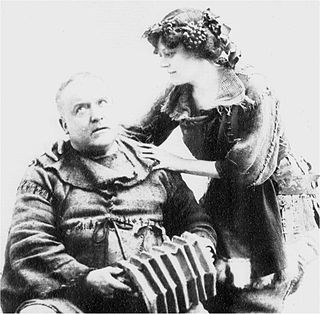
Henry Kemble was a British actor. A member of the famed Kemble family, he was the grandson of Charles Kemble.
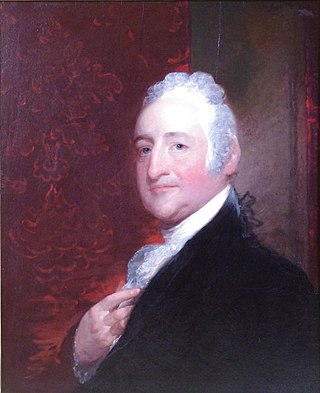
George Frederick Cooke was an English actor. As famous for his erratic habits as for his acting, he was largely responsible for initiating the romantic style in acting that was later made famous by Edmund Kean.
John Kemble may refer to:
Vortigern and Rowena, or Vortigern, an Historical Play, is a play that was touted as a newly discovered work by William Shakespeare when it first appeared in 1796. It was eventually revealed to be a Shakespeare hoax, the product of prominent forger William Henry Ireland. Its first performance was on 2 April 1796, when it was ridiculed by the audience. Its titular protagonists, Vortigern and Rowena, are figures from Britain's traditional history.
Charles or Charlie Martin may refer to:
Henry Poole may refer to:
The Warwickshire Company of Comedians, also known as Mr Ward's Company of Comedians and after 1767 as Mr Kemble's Company of Comedians, was a theatre company established by John Ward in Birmingham, England in the 1740s, touring throughout the West Midlands region and surrounding counties over subsequent decades. Unusual in the 18th century as a provincial company producing performances to London tastes and standards, it is particularly notable as the origin of the Kemble family theatrical dynasty, which was to dominate the English stage in the late-18th and early 19th centuries. Sarah Siddons and John Philip Kemble in particular, who were Ward's grandchildren and whose careers began in the company, were the leading actress and actor of their time, and are still considered among the greatest performers in English theatrical history.
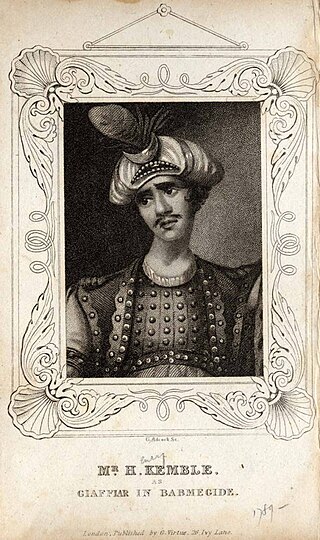
Henry Stephen Kemble was a British actor and son of Stephen Kemble.

Oakmere House is a public house and restaurant in Potters Bar, England, and a grade II listed building with Historic England. The pub is under the management of the Harvester company. The rear of the building faces onto Oakmere Park. The L31 German Zeppelin fell on an old oak tree in the grounds of Oakmere Park after being shot down by Lieutenant Wulstan Tempest on 1st October, 1916. His small plane was slightly damaged on landing back at his base, and he suffered a few injuries. He went next day to Oakere Park, Potters Bar, see what he had done the night before! This famous zeppelin was captained by the German hero of the time, Heinrich Mathy. He and his 18-man crew were all killed, and buried in the Potters Bar cemetery until their bodies were transferred to Cannock Chase many years later. The Potters Bar Museum has a section devoted to this important incident in the aerial battles over England. After the death of Mathy, zeppelin raids decreased.